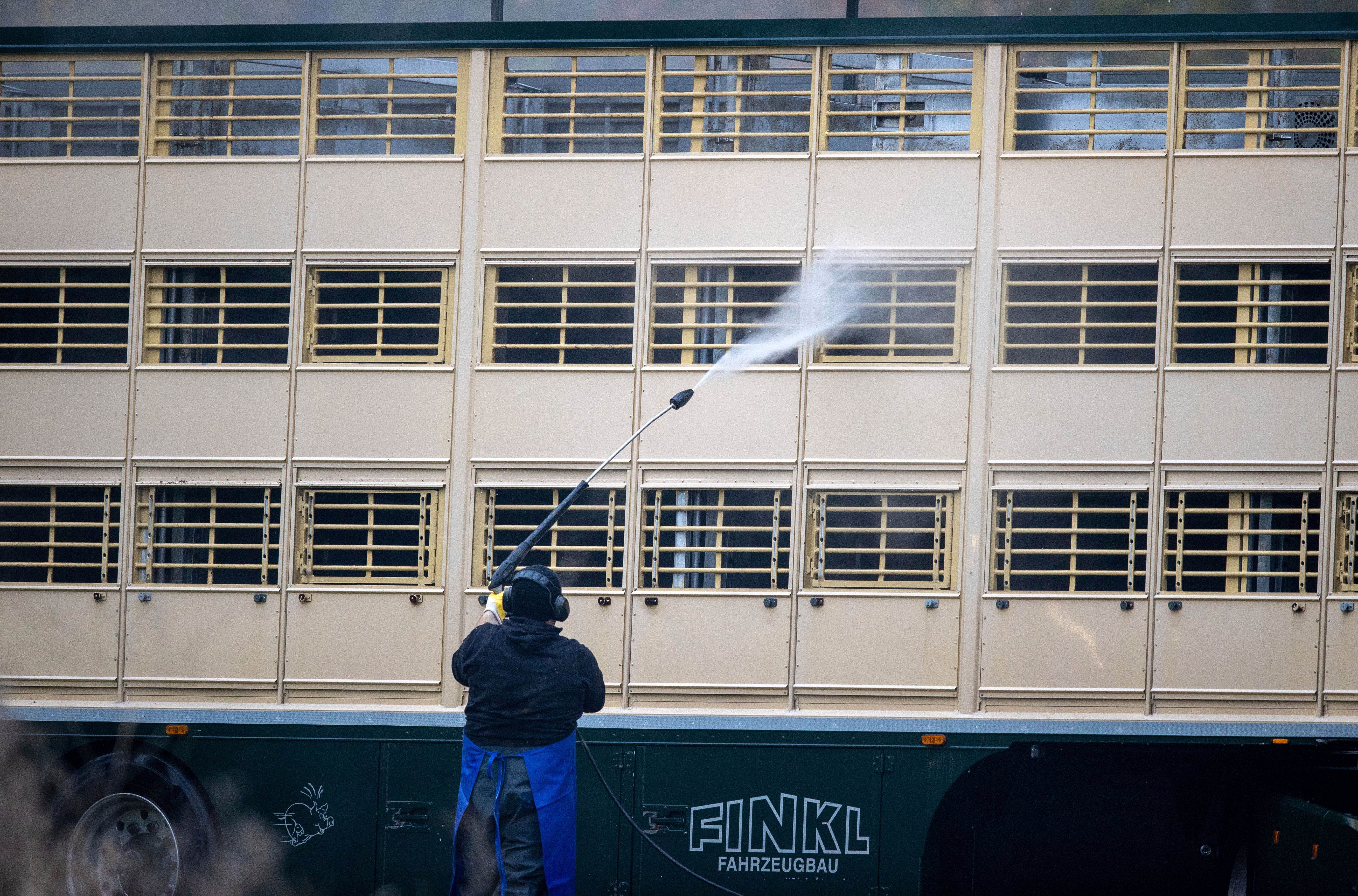German farm to cull 4,000 pigs after swine fever detected
A pig farm in northern Germany is culling all of its animals after a case of African swine fever was confirmed there this week

Your support helps us to tell the story
From reproductive rights to climate change to Big Tech, The Independent is on the ground when the story is developing. Whether it's investigating the financials of Elon Musk's pro-Trump PAC or producing our latest documentary, 'The A Word', which shines a light on the American women fighting for reproductive rights, we know how important it is to parse out the facts from the messaging.
At such a critical moment in US history, we need reporters on the ground. Your donation allows us to keep sending journalists to speak to both sides of the story.
The Independent is trusted by Americans across the entire political spectrum. And unlike many other quality news outlets, we choose not to lock Americans out of our reporting and analysis with paywalls. We believe quality journalism should be available to everyone, paid for by those who can afford it.
Your support makes all the difference.A pig farm in northern Germany began culling all of its 4,000 animals Wednesday after a case of African swine fever was confirmed there.
The outbreak near Guestrow, about 185 kilometers (115 miles) northwest of Berlin is the first at a large pig farm in Germany. Cases in wild boars were first reported in Germany last year, followed by outbreaks in smallholdings.
African swine fever is usually deadly for pigs but doesn’t affect humans. It has spread in several European countries, leading to large-scale culls of wild boars and farmed pigs.
German farmers had been dreading the arrival of swine fever because of the impact it will have on the pork industry, particularly lucrative exports to Asia
Denmark, another major pork exporter, recently stepped up measures to prevent African swine fever entering the country from neighboring Germany.
Officials said it was still unclear how the disease entered the farm near Guestrow, where it was detected this week.